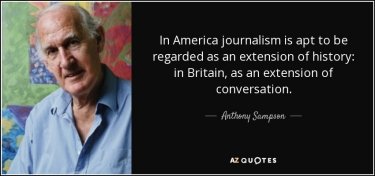In the Spectator, Yascha Mounk notes some major differences in educational standards and contemplates how much these must produce national differences in both journalism and political leadership.
When I first started teaching undergraduates at Harvard, the grading system the university employed struck me as very odd. Even ambitious students at top colleges in the United States see it as their job to answer any essay question in the most thorough and reasonable way. They regurgitate the dominant view in scholarly literature in a competent manner. If they pull this off without making major errors, they fully expect to get an A. And with grade inflation rampant in the Ivy League, they usually do.
This attitude has had a significant influence on American public life. If you read an opinion piece in the New York Times or the Washington Post, its basic thesis is often utterly unsurprising. But writers will usually argue in support of their uninspired conclusion in a painstakingly logical manner, building their case by placing one square block atop the other. In American journalism, to be right — or, at any rate, to argue for the position that the right people consider to be reasonable at the time — is much more important than to be brilliant or entertaining.
This stands in stark contrast to the grading scheme — and the implicit value system — I learned as an undergraduate at Cambridge. There, my teachers explained to me that the earnest and methodical essays I initially submitted as an overseas student fresh off the boat (or, rather, fresh off the Ryanair flight) from Germany would, at best, qualify for a high 2:1. To contend for a first, I needed to learn to be ‘brilliant’. …Just as in America, this grading system conveyed a particular set of values to students, one that they carry with them as they enter their professional lives. It seems to me, for example, that, for better and for worse, the ingrained habit of proving that they are worthy of a first has shaped the style of many British journalists. Even as the country is getting more polarized, opinion writers care more about being entertaining than about being right. Across the political spectrum, from the Guardian to the Telegraph, columnists have far greater freedoms than their American counterparts to adopt a chatty tone, to float a half-baked idea, or to go off on an entertaining tangent. For American journalists, the cardinal sin is to be wrong. For British journalists, the cardinal sin is to be boring.
It is perhaps inevitable that this attitude has not remained confined to the world of British journalism — and not merely because many journalists, from Winston Churchill to Michael Foot, have gone on to be influential politicians. Take the case of Boris Johnson. Before he became an ardent Brexiteer, he famously hesitated about whether he should join the remain or the leave campaign. And to figure out which way to jump, he wrote two newspaper columns: one supporting and one denouncing the European Union. …
Each grading system communicates a set of deeper values. And each set of values has both benefits and drawbacks.
America’s value system has helped to create a deeply conformist elite. As early as college, the best-credentialed people in the country learned that the benefits of brilliance or contrariness were low and the best way to get ahead was to be both competent and compliant. This created the Democratic Party of people like Hillary Clinton: candidates and advisors who were deeply fluent in the received wisdom of their time yet failed to appreciate the pulse of their own population. Ones who barely made any misstep but sounded so scripted that they ended up alienating millions.
Another drawback of the American system is that it leaves little room for rebellion within the ranks of the country’s elite. Since there is no way to assail the prevailing consensus within the idiom of the elite, any attack on it has to come from the barbarians at the gate. Donald Trump thrives in part because the American political system leaves no space for a Boris Johnson.
A third drawback, of mostly parochial concern, affects the dwindling few of us who still read or write for the mainstream press: the ethos of being accurate and reasonable — which aspiring journalists start to learn in college when they write up an email from the assistant dean for housing for their student newspaper in the same tone and diction in which they will, if all goes according to plan, as it often does, one day write up a presidential press conference at the White House — makes for dreadfully dull and often painfully incurious journalism.
But the value system implicit in Britain’s grading system also has serious drawbacks. It creates a culture in which charismatic amateurs are nearly always prized over earnest professionals; a political system in which cabinet ministers rarely have any deep knowledge about the subjects for which they are responsible; and a broader public culture in which the art of spin is often prized over the imperatives of substance.






Please Leave a Comment!